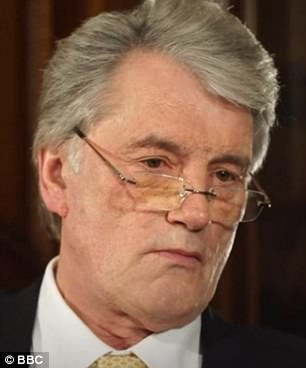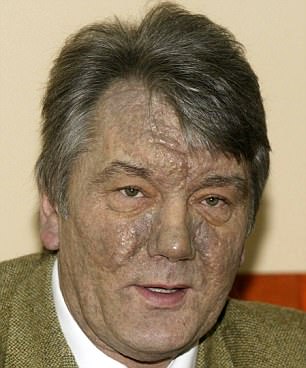While Jeremiah is a member of the Generation Joshua staff team, the views expressed in this post are the opinions of the author and do not necessarily represent the views of Generation Joshua or GenJ affiliates.
War. Nations are born and die in it. Freedoms are gained and lost in it. War shapes the world.
Last night Russian tanks rumbled into Ukraine in the first large-scale open war in Europe since World War II.
What has happened? What does it mean? What should we think? What can we do?
These are key questions for people who live in a democracy. Our constitution opens with the resounding words: “We the People.” This means that in our republic the buck stops with “we the people.” Our leaders, our laws, our international actions are all–ultimately–our responsibility.
So, I want to take a few minutes and dig into what has happened, what our country is doing, and what we as free citizens can and should do.
First, what has happened.
.png?sfvrsn=bd1d6d1_1)
Some will tell you that Ukraine is totally innocent, righteous, and pure. That overstates much. There are issues with corruption and the struggle to implement free democracy in their land has been an uphill fight. But they are striving in that direction.
However, countries have two kinds of freedom that need to be understood:
Personal freedom–Ukraine is struggling with this, but in the long arch of history it is making slow progress.
National freedom–Ukraine has been fighting for this freedom and has been challenged at every turn by Russia. In fact, it is my belief that a significant factor in the slow growth of personal freedom (see above) is due to the long term, relentless, and disabling attacks on national freedom due to Russia’s continued interference in Ukrainian governance.
That brings us to a little history.
Russia’s long term assault on the freedom of Ukraine has a history that goes back centuries and climaxes when the Russian led Soviet Union engaged in a man made famine that targeted the people of Ukraine in 1932-1933. It is called the Holodomor and at least 3.9 million Ukrainians died of systematic starvation. But going through all the complex history of the two counties is beyond the scope of this article. So I will start with events that took place in 2004.
2004–The Poisoning
The leading opponent to Russia’s involvement in Ukraine was running for president and was poisoned. While the concrete evidence of this attack being hatched in Moscow has never been
produced, there were few at the time that doubted that it was a warning to all who would oppose Russia. In fact, it and following events were such a blatant attempt to steal the election that the people took to the streets in what is called the Orange
Revolution and the Ukrainian Supreme Court ruled that the poisoned candidate whose face is now horribly disfigured due to that attack, was indeed elected president.


(before and after poisoning)
2008–Crimea Attacked
Ukraine’s most important port city is annexed by Russia. It was hardly a war, more like an orchestrated magic trick. You know, the kind where the 15 year old says that to do the trick he needs a $20 bill and then he makes the money disappear. The long and the short of it is: Russia pulled a Germany. You may remember the move in your history books, but the story goes like this: Aggressor Country says: “Hey, you are not treating these people the way we would. They need better protection. Just give it to me… Oh. Never mind. We took it off your hands.”
2014-2022–Russian Occupation
After taking the Crimea Russia occupied several districts in Ukraine claiming that they were not actually occupied by Russian troops, but rather that they were local rebels. These areas after several years under Russian control were the key used in the last few days as Putin declared that they were “independent countries” and that he would move military forces in to “help” them gain their independence from Ukraine.
Wow. This is getting long, so I’ve actually cut a lot of what I was going to say.
However, before I go much farther, I would like to give some background on the two most significant players from the American point of view:
Putin and Biden
Putin is an aggressive leader and a dictator. There are plenty that see his actions as a noble leader who wants to lead his country with strength. Perhaps we can grant some of that. But I refuse to call him noble. The reality is that he kills and arrests people who disagree with him. As lovers of freedom of speech, we should denounce the way that he kills and silences those who speak against him. Especially the media. We think that the Mainstream Media in the United States is unfair and pushing an agenda. Well, the Russian media is actually controlled by Putin and those that are not are silenced, sidelined, and in some cases murdered.
_03_(cropped)(a).jpg?sfvrsn=60d1d6d1_1)
Putin is also aggressively imperialistic. People both inside and outside the United States are concerned with American imperial tendencies, but Putin full-on invades and dominates his neighbors. He has installed a puppet government in Belarus. In 2008 he invaded and took provinces from the Nation of Georgia. In 2014 he invaded Ukraine and took Crimea and other Ukrainian lands. His neighbors are perpetual targets and his appetite is insatiable. It was for these reasons that many leaders including President George W. Bush pushed for a path for NATO membership for Ukraine and other vulnerable countries.
Biden is complex because he is my president. Historically, Democrats are more likely to be “soft on Russia” and to accuse Republicans of being “fear mongers” because the GOP has urged a strong stance against Russian aggression. But Biden is now trying to flip that narrative and make it sound like the Republicans are the Russia-lovers and the Democrats have been warning the world about Russia all along. In 2008, it was Republican candidate Sen. John McCain who forcefully raised the issue of Russia’s invasion of Georgia in the Presidential election while Obama and Biden downplayed the issue. Biden was Vice President in 2014 when Putin invaded Ukraine
aec8b8f1ed196e1787f3ff0200242537.png?sfvrsn=b8d1d6d1_1)
then and while there was a series of sanctions against Putin, the US response was fairly weak. Now, Biden is speaking strongly but acting weakly. He has played into Putin’s hands and now has a war unfolding before him that he is reacting to, not proactively heading off.
Biden is seen as compromised by his son’s connections in Ukraine. He is seen as weak for not only being responsible for the Afghan withdrawal disaster, but also for trying to pretend it was a success. While many people are looking to the United States to lead, in the last few weeks it has been the UK and France that have given moral leadership in the situation while the United States has engaged too little, too late.
What does it mean?
War in Europe is likely to have a wide range of impacts in various spheres.
First, for Russia, if Putin is able to successfully pull off his plan and take a large chunk of Ukraine, then he will have more access to uranium ore, greater oil reserves, and titanium. This is of course on top of the fact that it has long been seen as a breadbasket of Europe. Putin will likely also be emboldened to take bites out of other neighbors in the coming decade.
Second, for Europe, they lose opportunities to receive non-Russian oil. Thus becoming more dependent on the imperialist neighbor. Likely to need to increase military spending and either spend more on oil or become more dependent and politically beholden to Russia.
Third, for Ukraine, they will lose national sovereignty, many thousands killed, loss of democratic progress, increased corruption, and massive destruction of property that comes from being the center of war.
Fourth, for the USA, we stand to lose international standing as Russia replaces a pro-USA country with a pro-Russia country. Gas prices are likely to rise in the short term as war continues. Stocks and 401Ks are likely to be negatively impacted due to global uncertainty. China and other nations are likely to see the weakness of the United States and other pro-democracy allies as a signal that they can act on imperialistic motives without significant consequences. Some nations that have been reducing human rights violations due to American influence are more likely to look for leadership elsewhere. These countries could even end up exchanging human rights programs for programs more in line with the needs and motives of totalitarian leaders like China, Russia, and others that are bold enough to challenge the USA.
What can I do?
First, we need to be informed on the issues. Especially for those of us who live in democracies. Our leaders answer to us, so we need to know what is going on so that we can hold them accountable.
Second, we can challenge false narratives on the right and the left that hint at the fact that this is America’s fault or that Putin is not that bad of a dude. This is not America’s fault, Ukraine is being invaded and the only people that can take the full responsibility for this are the invaders. Putin is not to be admired. He is a thug and a dictator. Strong leaders can use their power for good or for ill, and he is using his power to oppress opposition, suppress minority voices, to invade his neighbors, and to engrandize himself and his country.
Third, we can support leaders that have measured and thoughtful additions to the conversation.
Fourth, we can pray for all involved, especially the civilians in Ukraine who are in danger. I would also encourage you to pray for strong leaders to rise up in all countries involved particularly Ukraine, Russia, and the United States who can overcome the status quo and truly find solutions to the geopolitical issues at play and creativity apply fresh ideas to the situation.
Finally, we can all further commit ourselves to the cause of freedom and justice. We can look for big and little ways to advance those important principles in our own communities.
Injustice and bondage are not just big issues that face people far away, freedom and justice are principles to be lived, advanced in every corner of the world, and cannot take a break. They are important enough for each of us to renew our passion for them and to find ways to thoughtfully advance their cause everywhere and in every time.
